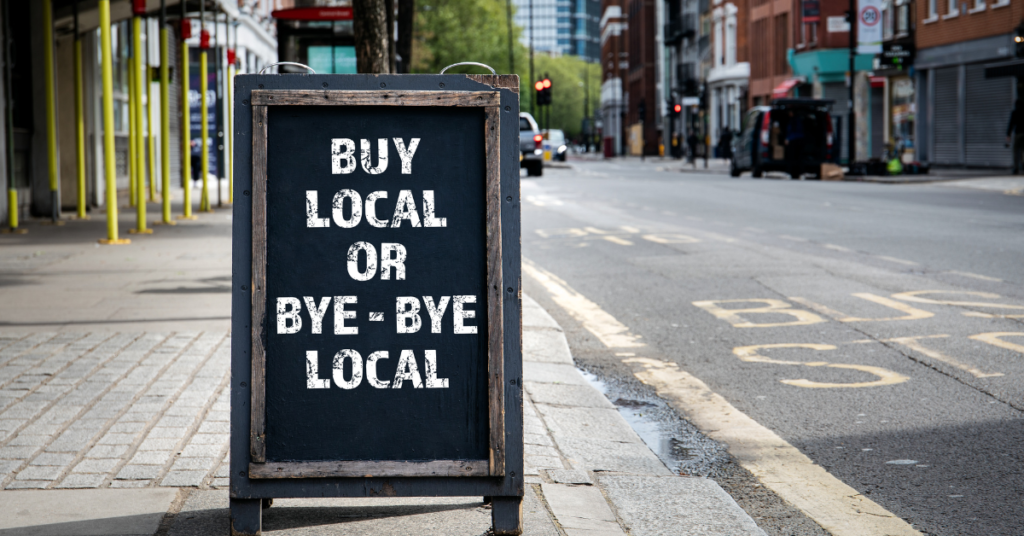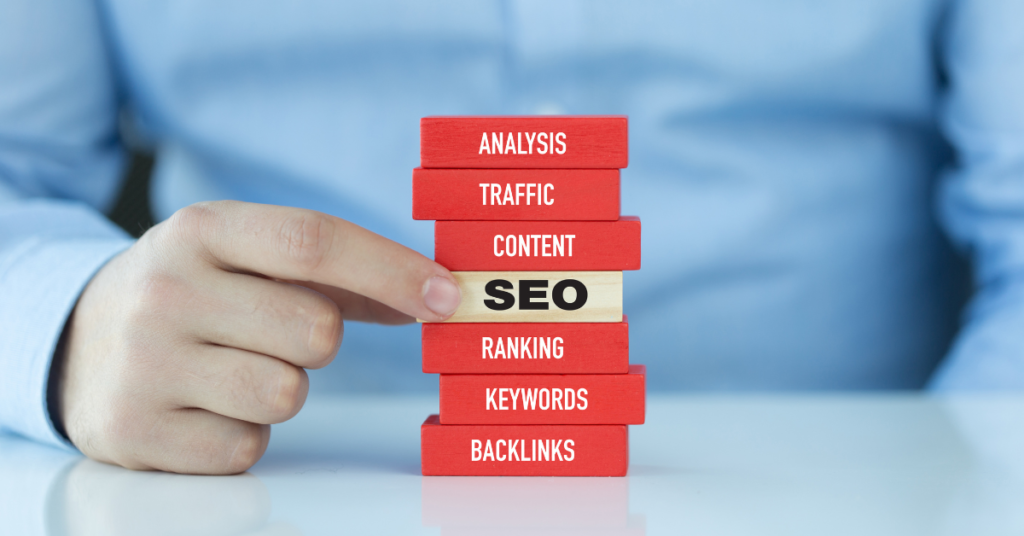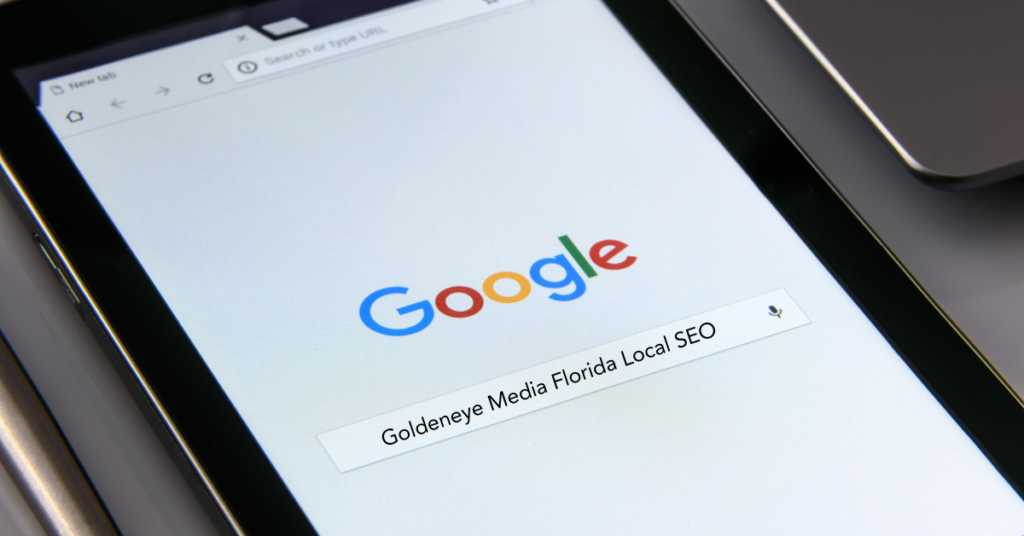
In the digital age, visibility is key. Especially for small businesses, being seen by the right audience can make all the difference.
That’s where local SEO comes in.

Local SEO, or Local Search Engine Optimization, is a crucial aspect of online marketing. It’s about making your business visible for geographically-related searches.
It’s about reaching your local customers, right when they’re looking for what you offer.
This Local SEO Guide is designed to help you understand this concept. It’s a comprehensive resource, packed with actionable insights.
Whether you’re a small business owner, a marketer, or just curious about SEO, this guide is for you.
We’ll explore the benefits of local SEO, how to craft a strategy, and much more.
By the end of this guide, you’ll have a clear understanding of local SEO and how to use it to your advantage.
Let’s dive in.
Understanding Local SEO
Before we delve into the specifics, let’s first understand what local SEO is.
It’s a subset of SEO, but with a local focus.

The goal is to optimize your online presence to attract more business from relevant local searches. These searches take place on Google and other search engines.
Think about when you search for something like “best pizza near me”. The results you see are a product of local SEO.
Local SEO is crucial for small businesses. It helps them compete with larger, more established brands.
By focusing on specific local-SEO strategies, businesses can reduce the competition they face.
What is Local SEO?
So, what exactly is local SEO?
It’s all about increasing search visibility for businesses that serve their communities face-to-face. This can be a physical business, like a restaurant or a retail store.
But it can also be a service-area business. Think plumbers, painters, or home cleaning services.

Local SEO includes everything from claiming a business listing to ensuring a consistent name, address and phone number (NAP) across the web.
It also involves managing online ratings and reviews, local-centric social media engagement, and beyond.
In essence, it’s a focused strategy. It aims to ensure your business gets found by people looking for it at that locality.
This is what makes local SEO crucial for your business. It’s about being visible to the customers who matter the most.
The Importance of Local SEO for Small Businesses
Local SEO is a powerful tool for small businesses.
It allows them to compete with larger competitors in the online space.

By focusing on a specific geographical area, businesses can target customers in their locality.
This is especially important for businesses with physical locations.
Think about it.
When a potential customer searches for a product or service near them, they’re likely ready to make a purchase.
If your business appears in these local search results, you have a higher chance of attracting this customer.
Benefits of Local SEO
So, what are the benefits of local SEO?
Firstly, it increases your visibility on search engines.
This means more traffic to your website and more customers walking through your door.
Image by Lukas Blazek
Secondly, it helps build your brand’s credibility.
When your business appears in local search results, it’s seen as reputable and trustworthy.
Thirdly, local SEO is cost-effective.
Unlike paid advertising, you don’t have to spend a lot to appear in local search results.
Lastly, it gives you a competitive edge.
Many small businesses are not utilizing local SEO, giving you the opportunity to get ahead.
In conclusion, local SEO is a powerful tool for small businesses.
It helps increase visibility, build credibility, save money, and gain a competitive edge.
Crafting Your Local SEO Strategy
Creating a local SEO strategy is not a one-size-fits-all process.
It requires a deep understanding of your business, your customers, and your local market.

The first step is to define your goals.
What do you want to achieve with local SEO?
More foot traffic?
Increased online sales?
Better brand visibility?
Once you have clear goals, you can start crafting your strategy.
This involves understanding your target audience and their search behavior.
What are they searching for?
What keywords are they using?
What type of content do they engage with?
Understanding these factors will help you create a strategy that resonates with your audience.
Step-by-Step Local SEO Checklist
Now that you have a clear understanding of your goals and audience, it’s time to get to work.
Here’s a step-by-step checklist to guide you through the process:
- Claim your Google My Business listing: This is a crucial first step in any local SEO strategy.
- Optimize your website for local keywords: Include keywords that your local customers are likely to use.
- Ensure NAP consistency: Your business name, address, and phone number should be consistent across all platforms.
- Encourage customer reviews: Reviews play a significant role in local search rankings.
- Build local links: Reach out to local businesses and bloggers for link-building opportunities.
- Create local content: Write blog posts, guides, and articles that resonate with your local audience.
- Optimize for mobile: Most local searches are done on mobile devices, so ensure your website is mobile-friendly.
- Track your results: Use tools like Google Analytics to monitor your progress and adjust your strategy as needed.

Remember, local SEO is not a one-time task.
It requires ongoing effort and optimization.
But with a clear strategy and consistent effort, you can significantly improve your local search rankings.
Key Components of Local SEO
Local SEO is a multifaceted discipline.
It involves several key components that work together to improve your local search visibility.
Let’s delve into these components in more detail.
Google My Business Optimization
Google My Business (GMB) is a free tool from Google.
It allows businesses to manage their online presence across Google, including Search and Maps.

By claiming and optimizing your GMB listing, you can improve your chances of showing up in local search results.
This includes filling out your profile completely, adding photos, and regularly updating your information.
Remember, an optimized GMB listing can significantly boost your local SEO efforts.
Consistent NAP Information
NAP stands for Name, Address, and Phone number.
It’s crucial that your NAP information is consistent across all online platforms.
This includes your website, social media profiles, and online directories.
Inconsistent NAP information can confuse search engines and lead to lower rankings.
So, make sure to regularly check and update your NAP information for consistency.
Local Keywords and Content
Local keywords are specific to your local area.
They include your city, neighborhood, or other local identifiers.
By incorporating these keywords into your website content, you can attract more local customers.
But remember, it’s not just about keywords.
Creating high-quality, locally relevant content is equally important for local SEO.
Building Local Links and Citations
Links and citations are another crucial component of local SEO.
A citation is any online mention of your business, including NAP information.
Links, on the other hand, are incoming hyperlinks from other websites to yours.
Here are some strategies for building local links and citations:
- Reach out to local bloggers and influencers: They might be interested in featuring your business in their content.
- Participate in local events and sponsorships: This can lead to mentions and links from local organizations and media.
- Create valuable content: High-quality, shareable content can naturally attract links and citations.
Remember, building local links and citations can improve your local search visibility and credibility.
But it’s important to focus on quality, not just quantity.
A few high-quality links and citations can be more beneficial than a large number of low-quality ones.
Leveraging Reviews and Ratings
Online reviews and ratings play a significant role in local SEO.
They not only influence consumer decisions but also impact local search rankings.
In fact, according to a study by Moz, online reviews make up 15% of how Google ranks local businesses.
Positive reviews can boost your business’s credibility and attract more customers.
On the other hand, negative reviews, if not handled properly, can harm your reputation.
So, how can you leverage reviews and ratings for local SEO?
First, encourage your customers to leave reviews.
You can do this by asking them directly, sending follow-up emails, or offering incentives.
But remember, it’s important to ask for honest reviews, not just positive ones.
Second, respond to all reviews, both positive and negative.
Responding to reviews shows that you value customer feedback and are committed to improving your service.
For negative reviews, offer a solution and try to turn the situation around.
Finally, showcase your positive reviews on your website and social media.
This can help build trust with potential customers and improve your local SEO.
Remember, leveraging reviews and ratings is a continuous process, not a one-time task.
So, make sure to regularly monitor and manage your online reviews for the best results.
Mobile Optimization and Local SEO

Mobile optimization is crucial for local SEO.
Why?
Because more and more people are using their mobile devices to search for local businesses.
In fact, according to Google, nearly 30% of all mobile searches are related to location.
This means that if your website isn’t mobile-friendly, you could be missing out on a significant amount of local traffic.
So, make sure your website is responsive, loads quickly, and offers a seamless user experience on mobile devices.
Remember, a mobile-optimized website not only improves your local SEO but also enhances the overall user experience.
In the end, a happy user is a potential customer.
Measuring Your Local SEO Success
Measuring the success of your local SEO efforts is crucial.
Why?
Because it helps you understand what’s working and what’s not.
You can use tools like Google Analytics and Google Search Console to track your local SEO performance.
These tools provide valuable insights into your website’s traffic, user behavior, and search engine rankings.
For instance, you can monitor the number of organic visits, the bounce rate, and the average time spent on your site.
You can also track the performance of your local keywords and see how they are ranking in search results.
Remember, the goal of local SEO is not just to increase your website’s visibility, but also to drive quality traffic that converts.
So, make sure you’re also tracking conversions and other key performance indicators (KPIs) that align with your business goals.
In the end, measuring your local SEO success allows you to refine your strategy and make data-driven decisions.
Common Local SEO Mistakes to Avoid
Local SEO can be tricky.
There are common mistakes that many businesses make.
One of these is inconsistent NAP information.
Your business name, address, and phone number should be the same across all platforms.
Another mistake is neglecting online reviews.
Reviews play a crucial role in local SEO.
Ignoring them can harm your online reputation and search rankings.
Also, many businesses fail to optimize their Google My Business profile.
This is a missed opportunity as it’s a powerful tool for local SEO.
Avoid these mistakes to improve your local SEO performance.
Future Trends in Local SEO
Local SEO is always evolving.
Voice search is becoming more popular.
People are using voice assistants like Siri and Alexa to find local businesses.
This means optimizing for conversational keywords is crucial.
Also, mobile-first indexing is now the norm.
Your website must be mobile-friendly to rank well in local search.
Lastly, user experience is gaining importance.
Google’s Core Web Vitals are now a ranking factor.
Ensure your website loads quickly and is easy to navigate.
Stay ahead by adapting to these trends.
Conclusion and Next Steps
Local SEO is a powerful tool.
It can help your business stand out in local search results.
But it’s not a one-time effort.
You need to regularly update your listings and respond to reviews.
Keep learning and adapting to stay ahead in the local SEO game.
Reach out to us if you need assistance with your local SEO! We’d love to help!




